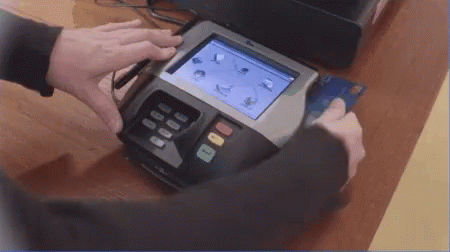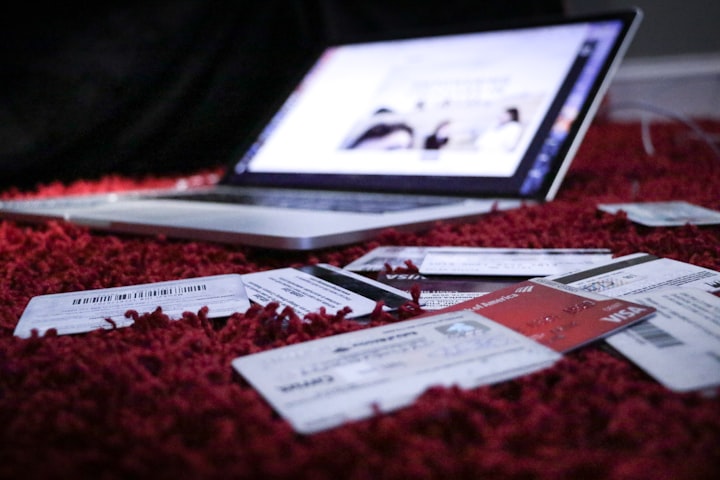The Plastic Predicament: A Closer Look at Using Credit Cards for Monthly Bills
Are you debating whether to use a credit card to pay for monthly bills? While rewards and convenience may seem tempting, high-interest rates and the risk of overspending could outweigh the benefits. So, is it worth it? Let's take a closer look.

Who needs cash or checks when you can just swipe your way to a free vacation? Gen Z adults are finding new ways to maximize their credit card rewards by using them to pay rent. And why not? If you're going to spend money on housing anyway, you might as well earn some points while you're at it.
But let's not forget that with great rewards come great risks. Paying rent with a credit card can quickly spiral into a debt trap if you're not careful. And while it's tempting to chase after those travel points, it's important to remember that interest rates on credit cards can be sky-high. It's crucial to weigh the pros and cons before jumping on the credit card bandwagon.
The Benefits of Paying Rent with a Credit Card
Credit cards can be an attractive option for renters. Let's be real; who doesn't love a good rewards program? With the Bilt card, for example, users can earn points that can be redeemed for travel, shopping, or even future housing payments. All you have to do is charge more than your rent to the card and make at least five transactions a month. Payment processors like Plastiq also allow renters to charge expenses to their credit cards, even if the landlord doesn't accept that form of payment.

But, let's not forget the real reason we're all here: the sweet, sweet rewards. If you're diligent about paying your credit card balance in full every month, you can earn points for doing something you were already going to do - pay rent. And if you're strategic about it, you can really make those points work for you. Just think of all the free travel and shopping you could do!
What are the Risks?
While the rewards might be tempting, there are risks to consider. One of the biggest risks is the interest rate. If you can't pay off your balance in full every month, the interest payments can quickly add up, leading to debt. Plus, payment processors like Plastiq may charge a fee that is a percentage of the transaction, eating into your rewards. And let's not forget that charging rent to your credit card can also be a red flag for lenders, indicating that you may be struggling financially.
But hey, if you're a money master with a stable income, why not reap those rewards? Just make sure to pay off your balance in full each month to avoid the dreaded interest charges.
The Love Affair of Gen Z with Credit Cards
Gone are the days when credit cards were simply tools for establishing credit. Nowadays, they've become a way of life for Gen Z adults. According to a survey conducted by LendingTree, young consumers are using their plastic more frequently than ever before. From rent to car payments to student loans, credit cards have become the go-to payment method for Gen Zers.
And while there are risks involved, using credit cards is still the easiest way for young adults to build a credit history. It's no wonder why new credit cards are being designed to specifically target the unique needs of this demographic.
Pros and Cons of Using Credit for Recurring Purchases
Using a credit card for recurring monthly payments, such as rent or car payments, can be a convenient way to earn rewards points and cash back, build credit, and manage your cash flow. However, there are also potential drawbacks to doing so. To help you weigh the pros and cons, we've put together a list of key factors to consider.
Pros:
1.) Rewards and Cash Back
Using a credit card for recurring payments can help you earn rewards points and cash back.
2.) Build Credit
Regular credit card usage for monthly payments can help establish a positive credit history and improve your credit score.
3.) Convenience
Paying monthly bills with a credit card is often easier than alternative payment methods.
4.) Payment Flexibility
Credit cards may offer more flexibility in terms of when you can pay your bills each month.
Cons:
1.) High-Interest Rates
Credit cards can carry high-interest rates, which can quickly offset any rewards earned if you carry a balance.
2.) Fees
Some credit cards may charge additional fees for balance transfers or for using the card for certain transactions, such as paying rent.
3.) Temptation to Overspend
Credit cards can make it easier to overspend and accumulate debt if you're not careful about paying off your balance.
4.) Risk of Late Payments
Missing a credit card payment deadline can result in late fees, damage to your credit score, and other consequences.
Salt’s Takeaways
So, should you pay your rent with a credit card? The answer is... it depends. If you're a responsible credit card user with a stable income, then go ahead and take advantage of those rewards. Just make sure you're not carrying a balance from month to month, or you could be hit with those dreaded interest charges. And if you're someone who struggles with credit card debt, it's probably best to steer clear of this strategy.
Remember, the most important thing is to make an informed decision that aligns with your personal financial goals. So go ahead and pay your rent with a credit card, but do it responsibly. And who knows? Maybe those rewards will pay for your next vacation!




Comments ()